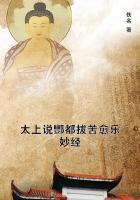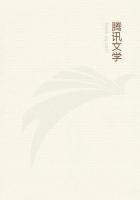The Cyclic poet uses `beggar' as a substantive, and so means to say that when Odysseus had changed his clothes and put on rags, there was no one so good for nothing at the ships as Odysseus.
Fragment #10 -- (2)
Plutarch, Moralia, p. 153 F:
And Homer put forward the following verses as Lesches gives them:
`Muse, tell me of those things which neither happened before nor shall be hereafter.'
And Hesiod answered:
`But when horses with rattling hoofs wreck chariots, striving for victory about the tomb of Zeus.'
And it is said that, because this reply was specially admired, Hesiod won the tripod (at the funeral games of Amphidamas).
Fragment #11 --
Scholiast on Lycophr., 344:
Sinon, as it had been arranged with him, secretly showed a signal-light to the Hellenes. Thus Lesches writes: -- `It was midnight, and the clear moon was rising.'
Fragment #12 --
Pausanias, x. 25. 5:
Meges is represented (3) wounded in the arm just as Lescheos the son of Aeschylinus of Pyrrha describes in his "Sack of Ilium"where it is said that he was wounded in the battle which the Trojans fought in the night by Admetus, son of Augeias.
Lycomedes too is in the picture with a wound in the wrist, and Lescheos says he was so wounded by Agenor...
Pausanias, x. 26. 4:
Lescheos also mentions Astynous, and here he is, fallen on one knee, while Neoptolemus strikes him with his sword...
Pausanias, x. 26. 8:
The same writer says that Helicaon was wounded in the night-battle, but was recognised by Odysseus and by him conducted alive out of the fight...
Pausanias, x. 27. 1:
Of them (4), Lescheos says that Eion was killed by Neoptolemus, and Admetus by Philoctetes... He also says that Priam was not killed at the heart of Zeus Herceius, but was dragged away from the altar and destroyed off hand by Neoptolemus at the doors of the house... Lescheos says that Axion was the son of Priam and was slain by Eurypylus, the son of Euaemon. Agenor -- according to the same poet -- was butchered by Neoptolemus.
Fragment #13 --
Aristophanes, Lysistrata 155 and Scholiast:
`Menelaus at least, when he caught a glimpse somehow of the breasts of Helen unclad, cast away his sword, methinks.' Lesches the Pyrrhaean also has the same account in his "Little Iliad".
Pausanias, x. 25. 8:
Concerning Aethra Lesches relates that when Ilium was taken she stole out of the city and came to the Hellenic camp, where she was recognised by the sons of Theseus; and that Demophon asked her of Agamemnon. Agamemnon wished to grant him this favour, but he would not do so until Helen consented. And when he sent a herald, Helen granted his request.
Fragment #14 --
Scholiast on Lycophr. Alex., 1268:
`Then the bright son of bold Achilles led the wife of Hector to the hollow ships; but her son he snatched from the bosom of his rich-haired nurse and seized him by the foot and cast him from a tower. So when he had fallen bloody death and hard fate seized on Astyanax. And Neoptolemus chose out Andromache, Hector's well-girded wife, and the chiefs of all the Achaeans gave her to him to hold requiting him with a welcome prize. And he put Aeneas (5), the famous son of horse-taming Anchises, on board his sea-faring ships, a prize surpassing those of all the Danaans.'
ENDNOTES:
(1) sc. after cremation.
(2) This fragment comes from a version of the "Contest of Homer and Hesiod" widely different from that now extant. The words `as Lesches gives them (says)' seem to indicate that the verse and a half assigned to Homer came from the "Little Iliad". It is possible they may have introduced some unusually striking incident, such as the actual Fall of Troy.
(3) i.e. in the paintings by Polygnotus at Delphi.
(4) i.e. the dead bodies in the picture.
(5) According to this version Aeneas was taken to Pharsalia.
Better known are the Homeric account (according to which Aeneas founded a new dynasty at Troy), and the legends which make him seek a new home in Italy.

